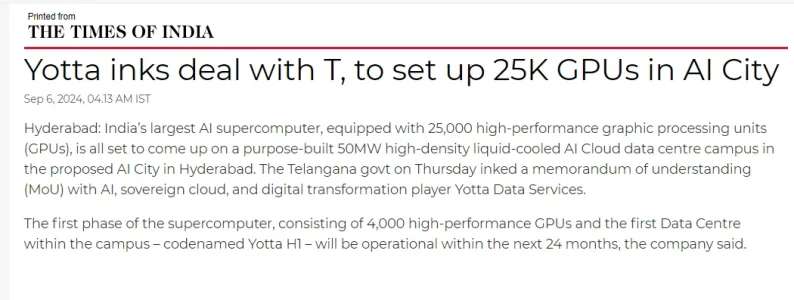- Joined
- Jun 30, 2024
- Messages
- 1,834
- Likes
- 23,361


A spin-off company from the Raman Research Institute (RRI), nexAtom Research and Instruments, will manufacture multi-channel, tunable laser systems having wide-scale applications in space and medicine.
“India could soon have its own multi-channel, tunable laser system technology platforms which are crucial for quantum optics laboratories, manufactured by a spin-off company from RRI,“ said the institute in a statement.
Last year, India embarked on the ambitious ₹6,000-crore National Quantum Mission (NQM). RRI is contributing towards the creation of an ecosystem enabling the smooth implementation of quantum-based technology solutions for the future.
“Such tunable laser systems will be useful for developing solutions across quantum communication, quantum technology, quantum system and metrology – all of which are the core themes of the DST-led NQM,” RRI.

"We are the chosen implementation partner to execute this MoU. The MoU had spoken about three things - setting up a very large 2 gigawatt data centre in India. This can double the existing capacity of data centres in India. The second is building one of India's largest supercomputers up to 8 exaflops which we (G42) are building with Cerebras, and third was co-developing AI models in India," Jain said.






Adani ConneX Pvt. Ltd, a joint venture between Adani Enterprises Ltd. and Virginia-based EdgeConneX, currently has 17 MW operational and 210 MW under-construction projects. With demand for its services skyrocketing, the group plans to achieve data-centre scale of 1-1.5 GW within one to two years, from the earlier target of five years, the two people cited above said on condition of anonymity.
“Adani will invest another $4 billion to reach this 1 GW. Based on present economics, investment per MW is around ₹40 crore," the first person said.
